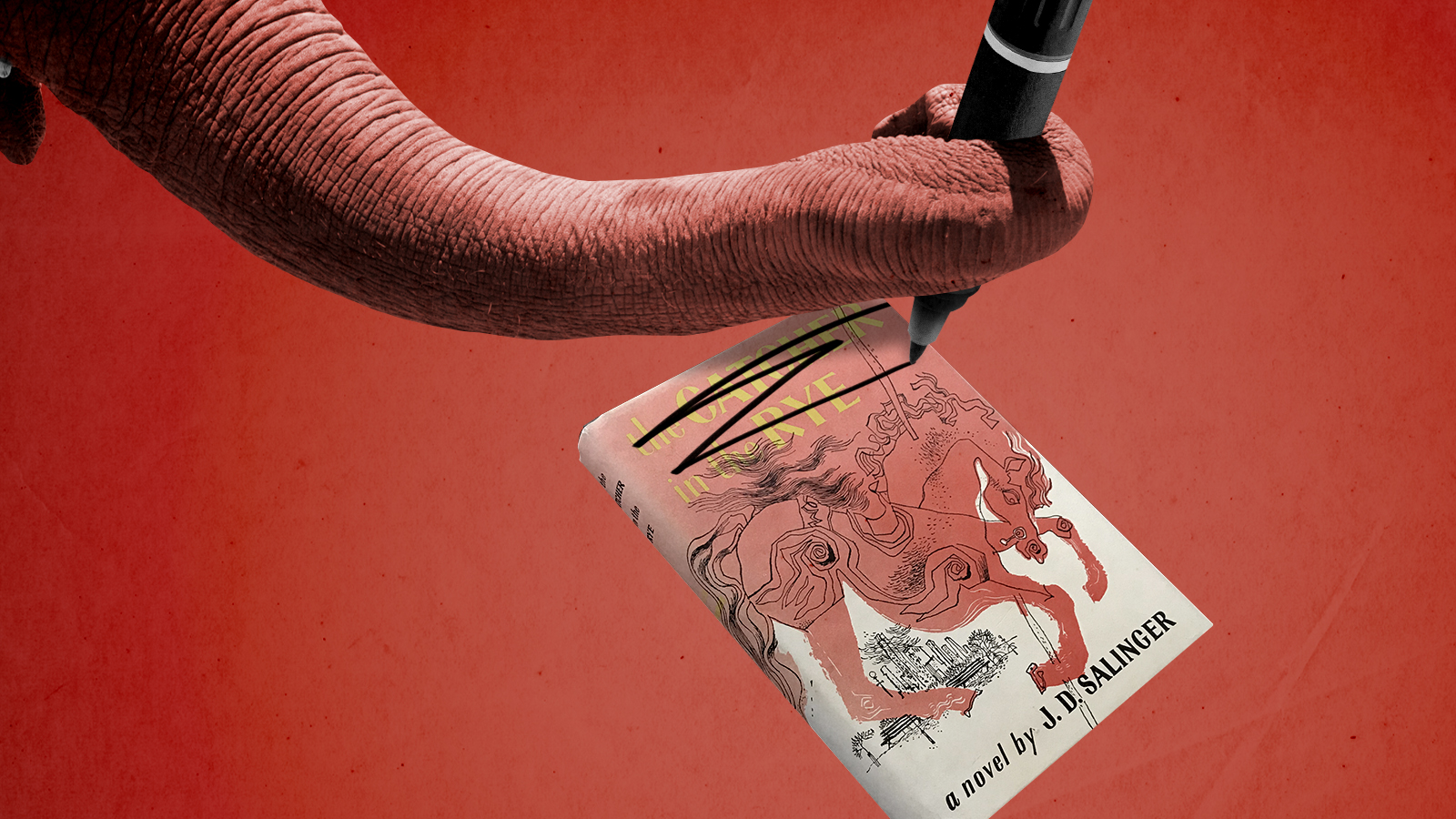The forgotten history of Republican book banning


A free daily email with the biggest news stories of the day – and the best features from TheWeek.com
You are now subscribed
Your newsletter sign-up was successful
A conservative stock character is making a comeback: the book banner. For the past few years, Republicans have pretended they're defending free speech and free inquiry in schools against censorious liberals with their safe spaces and trigger warnings. In reality, conservatives have a mile-long history of trying to suppress the teaching of books they find uncomfortable.
That record has resurfaced in the Virginia gubernatorial race, where Republican candidate Glenn Youngkin recently ran an ad in which a woman named Laura Murphy complained about not being able to dictate what was taught at her local high school. Murphy describes the issue as explicit material being shown to children without parental sign-off, but there's much more to the story than the ad let on: Back in 2013, Murphy told The Washington Post that her son Blake (now an associate general counsel for the National Republican Congressional Committee) had night terrors after being required to read Toni Morrison's book Pulitzer Prize-winning classic Beloved.
Murphy isn't the only Republican with this censorious impulse. The American Library Association maintains an incomplete list of attempted book-banning events in recent history, and in the large majority of cases for which a motivation is explained, it is conservative: Right-wing parents in Columbus, Ohio, tried to ban Catcher in the Rye in schools in 1963 because it was "anti-white." Other parents challenged The Grapes of Wrath in Greenville, South Carolina, in 1991 because it invoked God and Jesus in a "vain and profane manner." Slaughterhouse-Five was suppressed in Oakland County, Michigan, in 1972, in a case in which a circuit judge called the book "depraved, immoral, psychotic, vulgar, and anti-Christian." Those are just three of dozens of examples.
The Week
Escape your echo chamber. Get the facts behind the news, plus analysis from multiple perspectives.

Sign up for The Week's Free Newsletters
From our morning news briefing to a weekly Good News Newsletter, get the best of The Week delivered directly to your inbox.
From our morning news briefing to a weekly Good News Newsletter, get the best of The Week delivered directly to your inbox.
Now, liberals have done the same thing on occasion, typically targeting books which contain racial slurs, like The Adventures of Huckleberry Finn. But the bulk of book banning incidents — parents complaining about sexual content, violence, skepticism of Christianity, cursing, or the history of racism and slavery — are straight out of the Moral Majority politics of the 1980s and 1990s. That habit seemed to vanish for awhile when Republicans nominated a thrice-divorced, credibly accused rapist for president. Now it's coming back.
In recent months, Republican legislatures have passed de facto prohibitions of teaching the history of racism across the country. As a result, a Tennessee teacher was fired for assigning Ta-Nehisi Coates, while a Texas school board recently apologized for instructing teachers to present "opposing" views on the Holocaust while trying to obey a Republican law on curriculum content. Don't let the brief reprieve fool you: They were always like this.
A free daily email with the biggest news stories of the day – and the best features from TheWeek.com
Ryan Cooper is a national correspondent at TheWeek.com. His work has appeared in the Washington Monthly, The New Republic, and the Washington Post.
